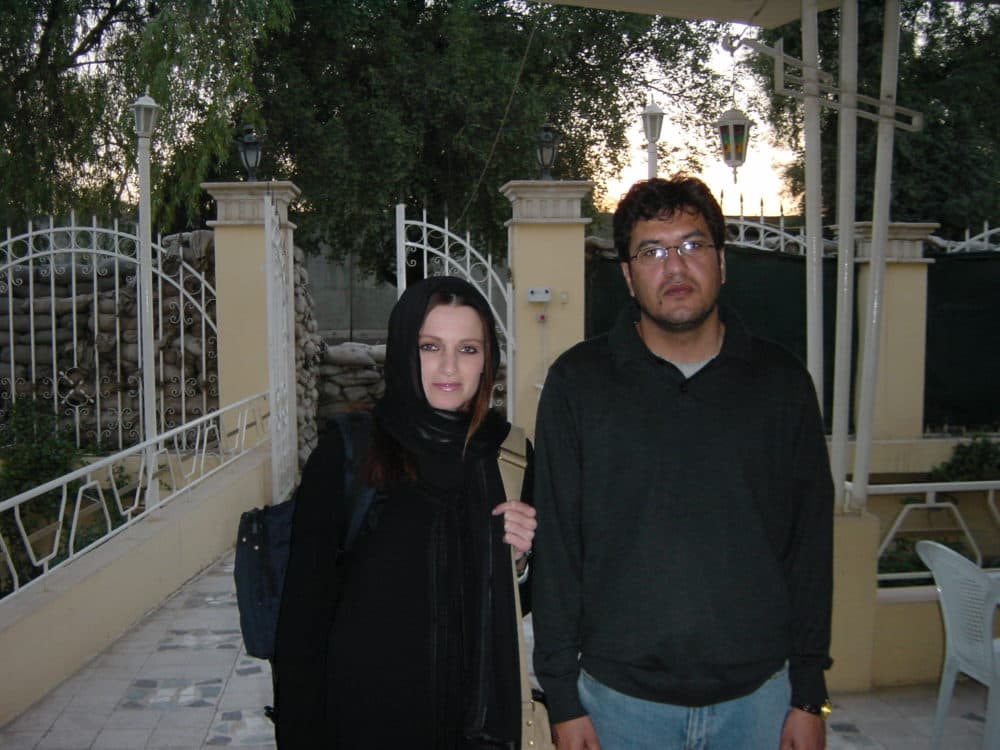Advertisement
Show Highlights: 'The Right Fertile Soil' for Authoritarianism

How does a country succumb to authoritarian rule?
That was the question at the heart of our hour on American authoritarian attitudes. To help us answer it, we heard from Abdulrazzaq al-Saiedi. He immigrated to the United States from Iraq in 2007.
In Iraq, the lead-up to Saddam Hussein’s authoritarian regime began with violence and tanks, with the Ba’athist takeover in 1968.
That was the same year al-Saiedi was born. He remembers watching Saddam Hussein’s ascendancy, and how the Iraqi dictator mutated language as a way to inflame Iraqi patriotism.
“When he talks to the Iraqi people, he always addresses it, you know, ‘The great people of Iraq. The great country,’” al-Saiedi says. “The message is clear is that, ‘You are great because of me. I made you great.’”
And, for many, the message resonated.
“It’s just like seed growing in the right fertile soil,” al-Saeidi said. “It’s a two-way equation between those who are in power, and people.”
Al-Saeidi says Saddam Hussein salted the soil of the Iraqi psyche with fear, evoking enemies from both outside Iraq and within.
“The imperialism. Foreign interference. The communists. The Islamists. You name it. It’s very dangerous because it has very long-term damage,” he says. “He made us live in fear. In fear of one another.”
In March 2003, the United States invaded Iraq and deposed Saddam Hussein. The justification was weapons of mass destruction. One of the goals was to free Iraqis from Hussein’s authoritarian rule — and to spread democracy.
Al-Saiedi is now a researcher and fellow with the Harvard Humanitarian Initiative and an expert on Iraq for Physicians for Human Rights. America is not Iraq. But Razzaq says now, in 2020, he can’t help but wonder how susceptible this country might be to authoritarian rule.
“I think we need to work very hard with each other in order … to get united,” he says. “Not to get united against each other but to get united for the sake of the country. To respect each other and also for the other generations,” he says.
And that feels particularly urgent for him right now. His wife just gave birth to their son last week.
“I come here to live in a free country and to be free,” he said. “And no more fear. So I want my son, here, to never live in fear.”
Interview Highlights
Political scientists Matthew MacWilliams and Larry Bartels weighed in on American’s propensity for anti-democratic tendencies and authoritarian worldviews.
At this critical juncture in American history, how fertile is the soil of American democracy to authoritarianism?
Matthew MacWilliams: “It's very fertile, and much more so than I think we all assume. Using public opinion data to understand authoritarianism, quantify it. ... We find that about 18% of Americans are highly disposed to authoritarianism. That doesn't mean they're activated, but they're highly disposed. And there's another 23% or so or just one step below them on the authoritarian scale. So we have this 40% or so of Americans who can be activated by these sweet nothings of an authoritarian leader.”
Larry Bartels’ published research this fall suggesting that Republican voters who agreed with anti-democratic statements were largely motivated by what he calls “ethnic antagonism.”
Larry Bartels: “I think what this is getting at is the most important part of the social context that seems to be activating these anti-democratic sentiments currently, which is a looming threat as many white Americans see it, of demographic change and social change in the country that's already occurred and that's projected to occur in the coming decades. I think for many people, this is really the core of the threat that they feel to their way of life. And they're increasingly agitated about it. And in many cases at least, willing to contemplate anti-democratic steps to keep things under control.”
On living up to our founding documents
MacWilliams: "Diversity is our strength. The problem is this myth of American exceptionalism persuades us that we can't have activated authoritarians in our country. We're special. We're different. And, you know, our Constitution is an exceptional document. Our Declaration of Independence is a soaring aspirational proclamation. But we're not exceptional people. We’re just people. And it's really up to each generation of us to live up to these aspirations and to form a more perfect union.”

